FENCE DEPOT is one of the well-known fence panel manufacturers in the market. We provide the most suitable fencing solutions for various buyers, such as supermarkets, retailers, or distributors. We can provide fence panels of various materials, such as metal, steel, aluminium, PVC, etc.
At the same time, the products we design and produce have multi-functional uses. Due to the low maintenance costs and high safety, they are widely used and praised by customers. We produce them to the highest standards and conduct quality inspections on each product.
As a professional manufacturer, we support distributors, contractors, and large projects. We provide a stable supply, fast delivery, and customized solutions. Our panels combine strength, safety, and durability. That makes them a trusted choice for commercial and industrial applications.
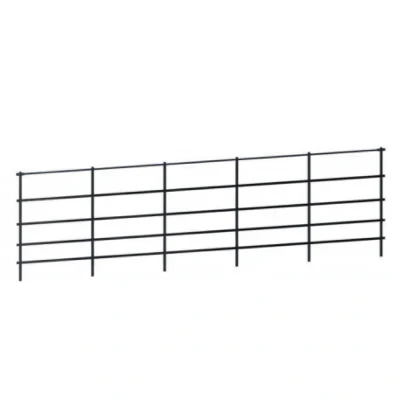 Aluminium Estate Fencing Panels
Aluminium Estate Fencing Panels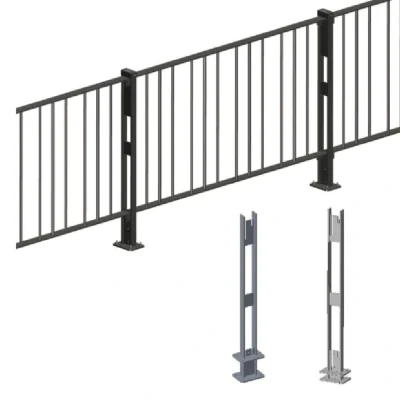 RMS Pedestrian Fencing, Metal Pedestrian Barrier Fence
RMS Pedestrian Fencing, Metal Pedestrian Barrier Fence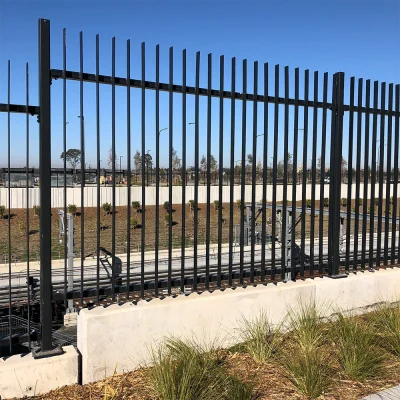 Vertical Slat Fencing, Metal Slat Fence Panel
Vertical Slat Fencing, Metal Slat Fence Panel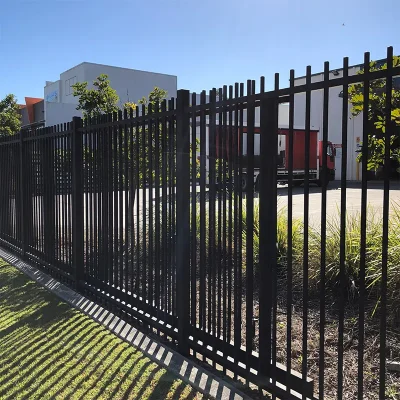 Rod Top Steel Fence Panel, Rod Top Security Fence
Rod Top Steel Fence Panel, Rod Top Security Fence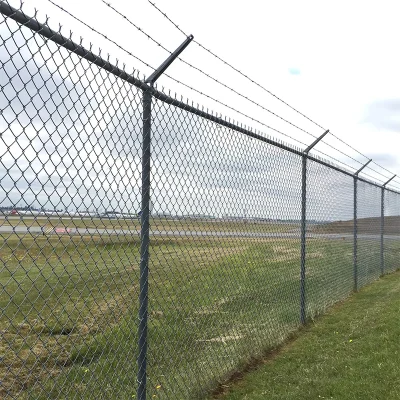 Chain Link Wire Mesh Fence, Security Chain Wire Fencing
Chain Link Wire Mesh Fence, Security Chain Wire Fencing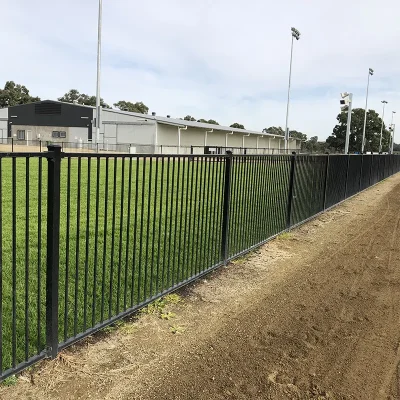 Flat Top Fence, Metal Steel Fence Panels
Flat Top Fence, Metal Steel Fence Panels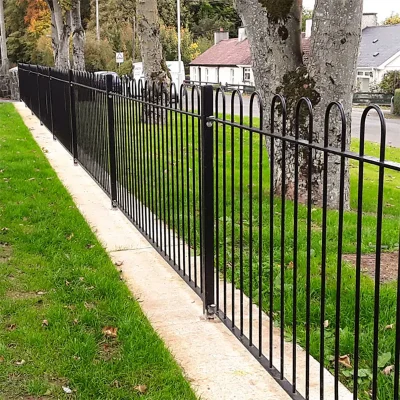 Loop Top Fencing, Steel Fence Panels
Loop Top Fencing, Steel Fence Panels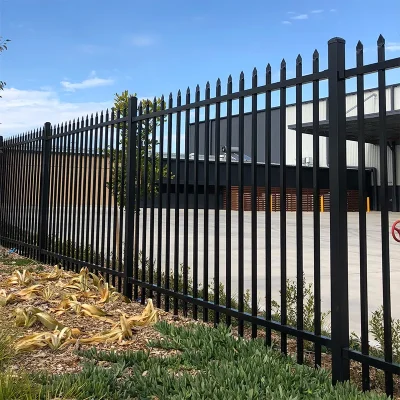 Steel Security Fence, Spear Top Steel Fence Panels
Steel Security Fence, Spear Top Steel Fence Panels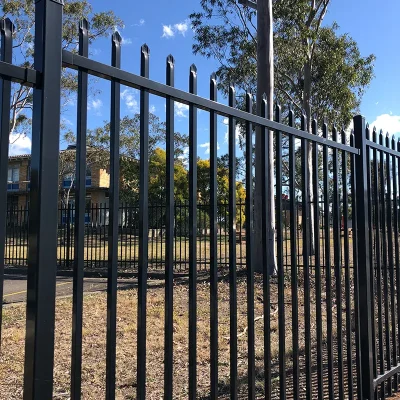 Spear Top Fencing, Aluminium Security Fence Panels
Spear Top Fencing, Aluminium Security Fence Panels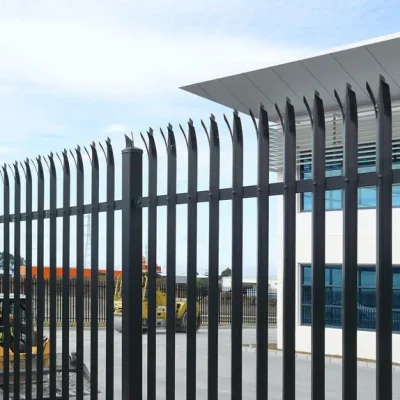 Palisade Fencing, High Security Fence Panels
Palisade Fencing, High Security Fence Panels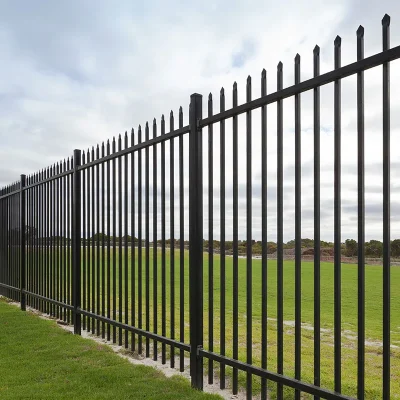 Garrison Fencing Galvanised Steel Security Fence Panels
Garrison Fencing Galvanised Steel Security Fence Panels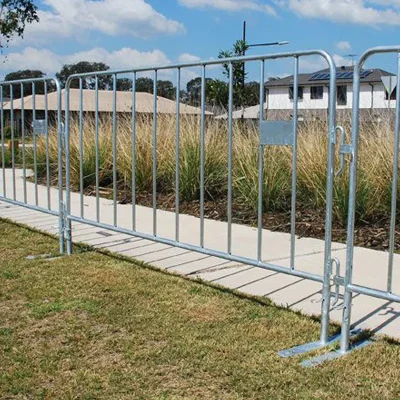 Crowd Control Barriers, Metal Steel Temporary Portable Barriers
Crowd Control Barriers, Metal Steel Temporary Portable Barriers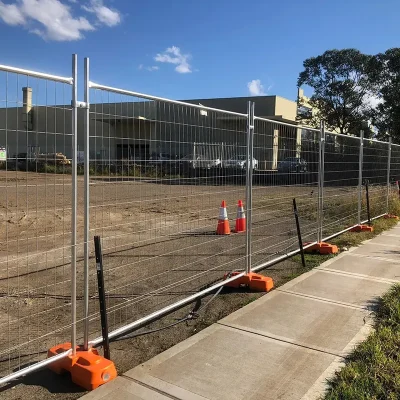 Australian Temporary Fencing, Welded Mesh Temporary Fence
Australian Temporary Fencing, Welded Mesh Temporary FenceOur commercial fence panels are produced on fully automated mesh welding lines, guaranteeing uniform weld spacing and strong joints. CNC cutting and bending machines keep every panel within ±1mm tolerance, ensuring accurate and easy installation on-site.
We operate robotic welding arms for clean, consistent welds, automatic powder-coating lines with 60–80 μm coating thickness, and tube roll-forming machines for stable post and frame production. This advanced equipment delivers high efficiency and reliable quality in mass production.
We use galvanised steel wires (zinc ≥ 60 g/m²) and pre-galvanised tubes (zinc ≥ 200 g/m²) that comply with ASTM A641 and EN 10244 standards. All steel is tested for tensile strength ≥ 500 N/mm² and zinc thickness before production, ensuring long-term corrosion resistance for outdoor and industrial applications.
Each batch of panels is tested with weld shear strength (≥ 350 N per weld), salt spray testing (500–1000 hours), powder-coating adhesion (cross-cut test), and dimensional inspections. These strict quality checks guarantee compliance with ASTM F2919 and EN 10223 standards.
Our workflow includes wire straightening, mesh welding, frame assembly, powder coating, and palletized packaging. With a capacity of 10,000+ panels per month, we ensure consistent quality, fast delivery, and reliable supply for commercial and industrial fencing projects.
Prevent unauthorised intrusion, theft, or vandalism. Is there a need to protect private areas? Does it require anti-climb design? Does it require sight blocking?
Choose the most suitable fence: welded, wire mesh, temporary fence, or PVC-coated panels, depending on security needs, visibility, and installation environment.
Select the primary material (low-carbon steel or stainless steel) and surface finish (hot-dip galvanised, powder coated, E-Coating, PVC-coated) for durability and corrosion resistance in your climate.
Decide on opening size and wire spacing to balance strength, visibility, and security requirements. Smaller openings improve security, and larger openings enhance visibility.
Pick the wire thickness or gauge that provides the required rigidity and load-bearing capacity for your application, from light residential to high-security fences.
Specify height, width, and panel shape, including V-bent profiles if needed. Custom sizes can be produced for specific project layouts or modular installation.
Determine the need for posts, clamps, bolts, brackets, or framing hardware. Pre-packed accessories simplify installation and reduce on-site assembly time.
Corrosion-resistant materials are required near coastal areas. Materials should be rust- and mildew-resistant in rainy areas. The structural strength and securing method of the fence are crucial in strong winds.
Submit specifications or select products online.
Our team provides quotes and confirms order details.
Secure your order and production schedule.
Each batch undergoes strict QC.
Safely packed and shipped to your destination.
Delivery confirmed with support for any follow-up.
A: It includes chain link fence, welded wire mesh, picket fence, decorative iron, aluminium, and vinyl, while selection depends on factors such as safety, aesthetics, and durability requirements.
A: Commonly used materials for manufacturing commercial and industrial fences are galvanised steel, aluminium, iron, and vinyl. Each material has varying degrees of strength, durability, and maintenance requirements.
A: Including security, privacy, durability, maintenance, aesthetics, local regulations, and budget constraints.
A: Commercial and industrial fences differ from residential fences in terms of purpose, materials used, size, and strength. They can offer a higher level of security, privacy, and durability to withstand frequent use and harsh environments.
A: They not only protect property and enhance aesthetics but also enhance security, control access, increase privacy, reduce noise, and protect wildlife.
A: regularly inspect it for damage, clean it with appropriate solutions, and promptly address any issues such as rust, loose components, or damaged sections.